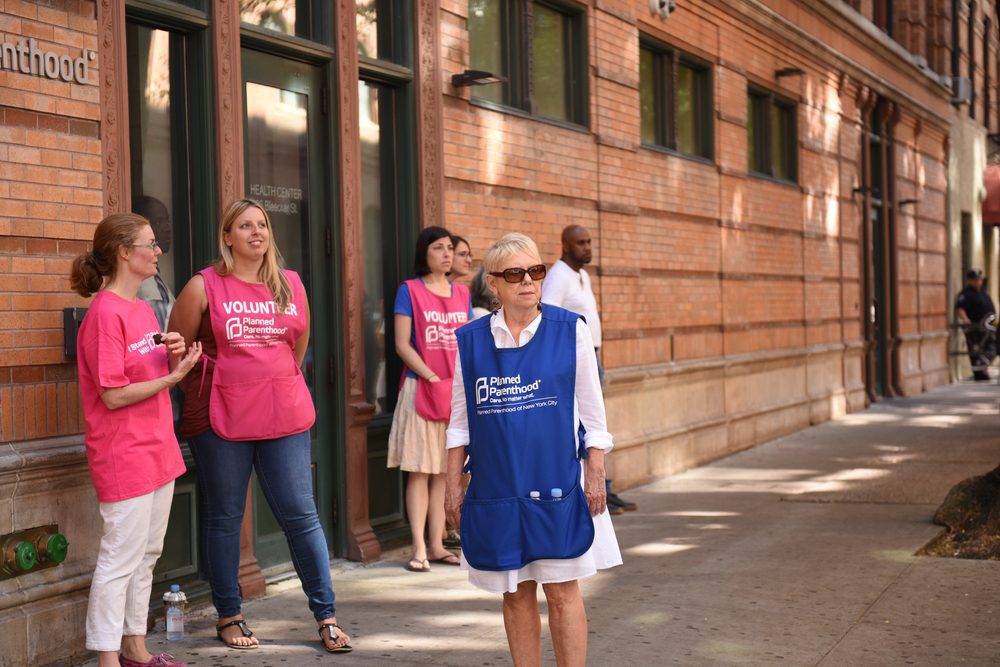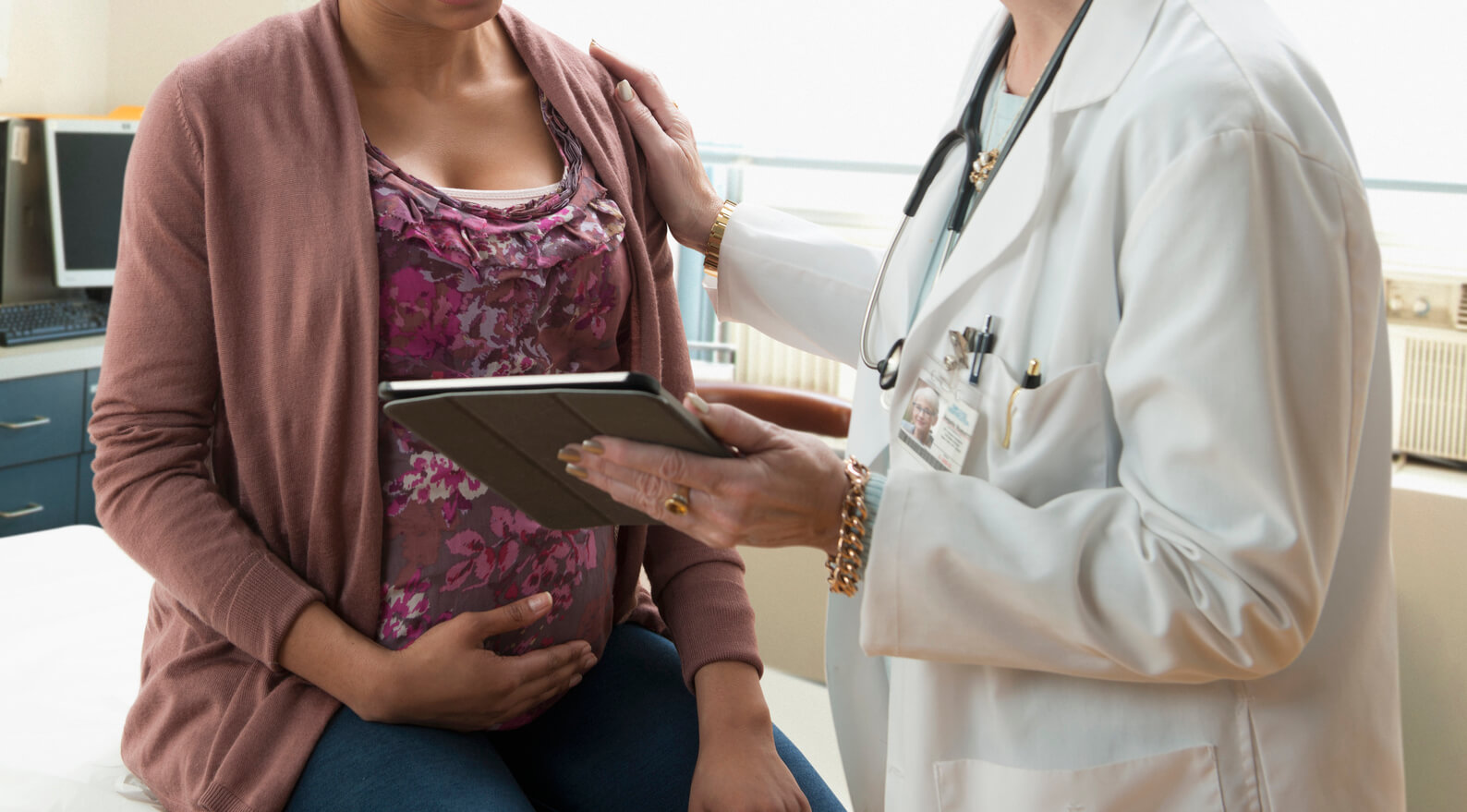
Bottles of abortion pills mifepristone, left, and misoprostol, right, at a clinic in Des Moines, Iowa, Sept. 22, 2010. Medication abortions became the preferred method for ending pregnancy in the U.S. even before the Supreme Court overturned Roe v. Wade. Now threatened by a federal court case in Texas, they usually involve taking two prescription medicines days apart — at home or in a clinic. In the U.S., medication abortions usually involve the drugs mifepristone and misoprostol. (AP Photo/Charlie Neibergall, File)
The basics of an increasingly popular way of getting abortion medication.
Lauren Jacobsen, a nurse practitioner licensed in Massachusetts, is one of the growing number of health care providers in the US writing prescriptions for abortion medication through telemedicine.
Jacobsen said in 2022 she saw the news about the Supreme Court’s Dobbs v. Jackson decision—which overturned Roe v. Wade—and found the email address Aid Access had set up for providers to apply.
Aid Access is a nonprofit that allows patients to connect with health care providers via telemedicine, as they seek prescriptions for abortion medication. Right now, health care providers in states with shield laws—protections for providers who perform abortions and prescribe the pills—are able to offer medication abortions to patients in many states with strict abortion bans…like Iowa.
“I’m getting really angry about this whole situation. Like, surely there’s something I can do,” she said. “So I emailed and I’m like, ‘oh, I’m gonna just get lost in the admin cycle’ and within 24 hours, Rebecca Gomperts [the founder] emailed me back and was like, ‘let’s connect.’”
Jacobsen has been consulting with patients and writing prescriptions ever since.
Abortions are hard to get in Iowa now that the 2023 near-total abortion ban is in effect, but Iowans have still found ways.
Like the rest of America, Iowans are increasingly getting abortion medication—mifepristone and misoprostol—delivered to them through the mail. It’s the most popular method of abortion, accounting for 63% of all abortions in the US in 2023, according to a March 2024 report from the Guttmacher Institute. And that’s not counting people who received the medication outside of official channels and took it without telling anyone.
Medication abortion was already popular before the fall of Roe, because most patients are able to take the pills in comfort and privacy. Mifepristone blocks pregnancy hormones and misoprostol causes cramping that empties the uterus.
The method is safe—years of studies have shown serious complications happen in less than 0.3% of patients—and has been approved by the FDA for use up to 10 weeks past the day of a pregnant person’s last period.
Aid Access prescribes the pills until 13 weeks, which follows the guidance from the World Health Organization.
“It’s a very safe way of providing care, both physically safe and emotionally as well,” Jacobsen said. “People are really in a lot more control of their bodies in a situation where their rights and control are being stripped away from them.”
Legal risk
The legal risk for Iowans seeking medication abortion is low for now, according to Sally Frank, an abortion law expert and law professor at Drake University.
She said the safest approach, legally, is to get the pills with a prescription from a licensed provider who has protection from being prosecuted by states with abortion bans.
“I could see the Iowa Legislature trying to find a way that makes it illegal,” she said. “But if they’re not going to make it a crime for a pregnant person to seek an abortion or get an abortion, it’s going to be pretty hard for them to say you can’t send medication into our state.”
Shield laws have not been tested in court, but in December 2024, the Texas attorney general’s office filed a suit against a doctor in New York—which has a shield law—who prescribed abortion pills to a Texas citizen. At the time of publication, no decisions had been made in the case.
And because abortion pills are so commonly used, there will likely be ongoing legal challenges from states with strict abortion laws.
The Trump administration could also restrict access to the pills. Frank said she can imagine two paths to doing so: enforcing the Comstock Act or pulling back FDA approval for the pills.
The Comstock Act was first passed in 1873 and wasn’t meant to ban abortion specifically, but to ban the mailing of “immoral” material. Legal minds in Trump’s circle have said they intend to use the Comstock Act to classify abortion medication and equipment as “immoral” and prevent it from being mailed even to states where abortion is protected.
The FDA initially approved abortion pills in 2000, and they have recently expanded their rules to cover pills being sent through the mail. Frank said the Trump administration could go after any of the rules associated with their use.
For now, Frank stressed the safest way to get abortion pills is to get a prescription from a licensed provider.
“It’s going to be harder to charge anybody if [the medication is] legally prescribed,” she said.
Level of care
In order to get pills from Aid Access, patients fill out a consultation form on their website with information about their pregnancy, some medical history, and preferred contact method. The form asks onlyWha medically necessary questions just like a doctor would at an appointment, and Jacobsen said they provide more resources and information for people who need or request it.
Then a licensed provider will write the prescription and package the pills to send to the address the patient provided.
“We go through these every day—and that’s for 30 to 50 people, each of us every single day,” Jacobsen said. “We’re sending around 10,000 packages a month now.”
All of the pills are made in the US and patients will get a tracking number when their package ships.
Jacobsen said that if patients have follow-up questions, they’re welcome to email back and they’ll be connected to the provider who they originally communicated with. If someone needs more support, Aid Access offers video calls, too.
Jacobsen said the system of mailing pills has been revolutionary, especially in a country where millions of people live in maternity care deserts and are increasingly losing access to abortion.
“When you think about abortion pills in the mail, it’s a huge opportunity because these can just be sent to someone’s house,” Jacobsen said. “That person doesn’t need to take off work and find childcare for their kids and coordinate travel outside of the state to have an abortion. They can do it safely in the privacy of their own home, and often maybe only take a couple days off of work.”
“People are able to take ownership of their bodies again.”
Support Our Cause
Thank you for taking the time to read our work. Before you go, we hope you'll consider supporting our values-driven journalism, which has always strived to make clear what's really at stake for Iowans and our future.
Since day one, our goal here at Iowa Starting Line has always been to empower people across the state with fact-based news and information. We believe that when people are armed with knowledge about what's happening in their local, state, and federal governments—including who is working on their behalf and who is actively trying to block efforts aimed at improving the daily lives of Iowan families—they will be inspired to become civically engaged.


More Iowans leave state for abortion care as demand for help surges
Since Iowa’s near-total abortion ban went into effect in July 2024, the number of residents seeking abortion care outside the state has surged...

House GOP fast-tracks budget bill that would cut off Medicaid funding to Planned Parenthood
The budget package proposes steep health care cuts—and includes a new push to block patients from accessing reproductive care. In a 30-24 party-line...

Report: Majority of pregnancy-related deaths in Iowa could have been prevented
A newly released report found that 95% of pregnancy-related deaths in Iowa were preventable, and those deaths disproportionately affected women who...

Shattering stigma: Iowa woman shares her abortion story to empower others
There are different types of people who seek abortions. Here is the story of one of those women—the everyday woman who accidentally got pregnant....

New Iowa bill would ban abortion pill, sparking backlash
Republican proposes bill to effectively end 74% of abortions in Iowa by banning a pill that’s safer than penicillin and Viagra. Seventy-four...

Way more Americans are getting sterilized since Roe was struck down, research finds
A new study has found that from May to August 2022, vasectomies surged by 95% and tubal sterilizations increased by 70% among adults ages 19 to 26....





